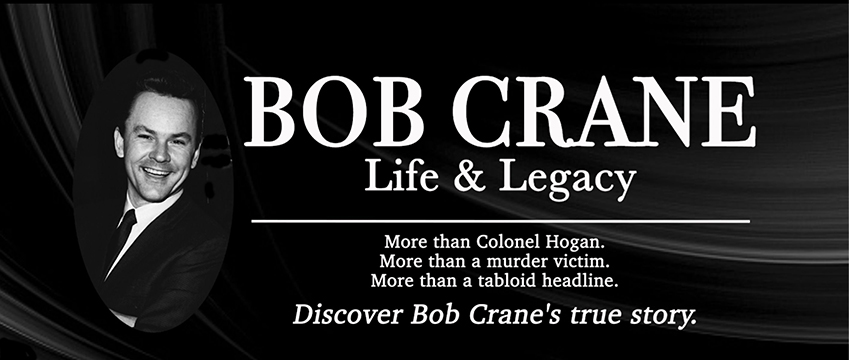Bob Crane loved being in the limelight, and throughout most of his life, he was a friend to the press, enjoying being interviewed and talking with reporters. Ever since his growing-up years in Stamford, Connecticut, Bob kept meticulous records of everything he did. As a kid, he organized parades with his music pals, and played football, baseball, and basketball games with his sports buddies. When they marched or played a scrimmage game, he made sure to notify the local press (in this case, The Stamford Advocate). When his articles showed up in print, Bob would be elated.
He would also become quite miffed if a reporter got something wrong, often pointing out the error in future articles. I can understand this completely. The last thing anybody wants is to be misrepresented. In 1965, a TV Guide reporter mistakenly wrote that he quit The Donna Reed Show over money and that Donna Reed's husband and producer Tony Owen was furious over it and glad he was gone, stating they wouldn't even miss him. Bob was hurt by the article. In fact, he was so upset that in another TV Guide article published shortly after Hogan's Heroes premiered, Bob made sure to correct the information, claiming it was completely inaccurate, and that he and Donna Reed and Tony Owen had remained friends since his departure (which, incidentally, was not over money, but rather, Bob's boredom with the role). And this is proven to be true. Donna Reed and Tony Own sent Bob a Western Union Telegram right after the premiere of Hogan's Heroes congratulating him, signing it "Love, Donna and Tony." And throughout at least the first year of Hogan's Heroes, Donna talked with Bob immediately following the airing of each episode to discuss his acting technique. (For more about this, read Bob Crane: The Definitive Biography).
After becoming a popular disc jockey/radio personality (and Bob preferred the term radio personality), newspaper articles and advertisements started appearing in news outlets locally and across the country praising Bob for his broadcasting accomplishments. Here are a few from 1955, concerning his work at WICC in Bridgeport, Connecticut. Note that in the first article from The Bridgeport Post, the the mistake in the TV Radio Mirror article is mentioned. (Double click on each for easier reading.)
He would also become quite miffed if a reporter got something wrong, often pointing out the error in future articles. I can understand this completely. The last thing anybody wants is to be misrepresented. In 1965, a TV Guide reporter mistakenly wrote that he quit The Donna Reed Show over money and that Donna Reed's husband and producer Tony Owen was furious over it and glad he was gone, stating they wouldn't even miss him. Bob was hurt by the article. In fact, he was so upset that in another TV Guide article published shortly after Hogan's Heroes premiered, Bob made sure to correct the information, claiming it was completely inaccurate, and that he and Donna Reed and Tony Owen had remained friends since his departure (which, incidentally, was not over money, but rather, Bob's boredom with the role). And this is proven to be true. Donna Reed and Tony Own sent Bob a Western Union Telegram right after the premiere of Hogan's Heroes congratulating him, signing it "Love, Donna and Tony." And throughout at least the first year of Hogan's Heroes, Donna talked with Bob immediately following the airing of each episode to discuss his acting technique. (For more about this, read Bob Crane: The Definitive Biography).
After becoming a popular disc jockey/radio personality (and Bob preferred the term radio personality), newspaper articles and advertisements started appearing in news outlets locally and across the country praising Bob for his broadcasting accomplishments. Here are a few from 1955, concerning his work at WICC in Bridgeport, Connecticut. Note that in the first article from The Bridgeport Post, the the mistake in the TV Radio Mirror article is mentioned. (Double click on each for easier reading.)



